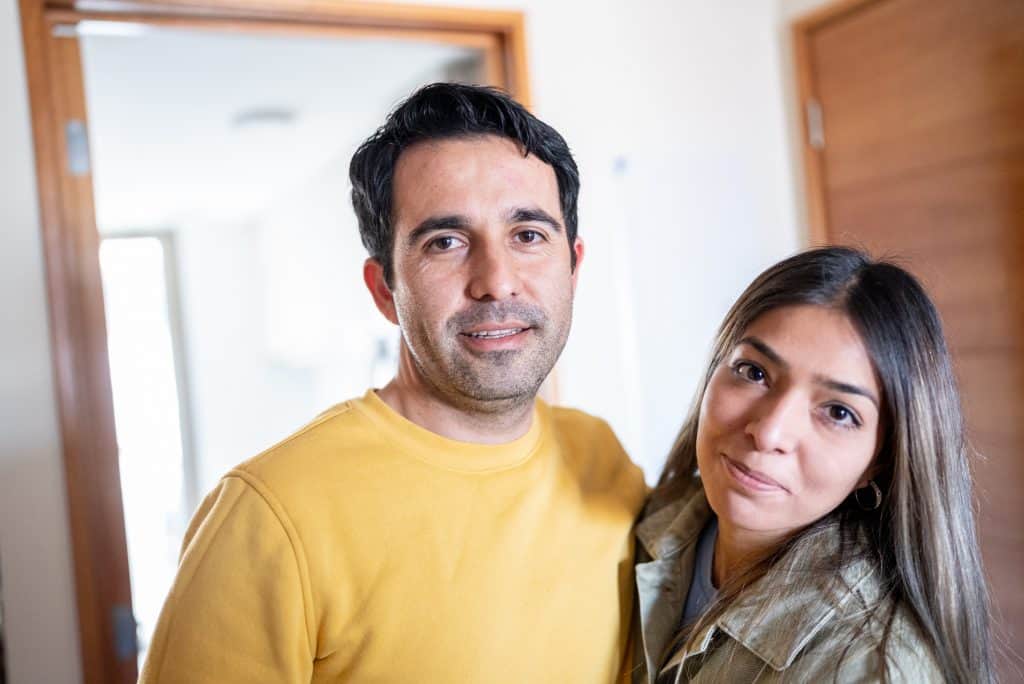We’ve been married long enough that I can see the signs.
I can immediately sense when my husband isn’t fully present–when he’s hiding. I know when he’s stressed, sometimes before he even recognizes it. I can tell when he’s empty and depleted, grasping at things that I know won’t fill him.
I’ve had plenty of practice being a student of his behavior—we’ve been married over 19 years. For over a decade of our marriage, he used porn as an escape from the stresses of this life. Though he has found freedom from this particular affliction, I admit, my anxiety can still rocket sky-high when I see him in a not-so-good place.
Even though I’ve learned I can’t fix and I can’t fill, I still find myself trying. And when “I” don’t work or “I” am not enough, I tend to get despondent.
Certainly, I want him to be happy and filled with joy. Certainly, I want him to have peace with Jesus and know without a doubt that God loves him with an everlasting love. Certainly, I want him to know that he has what it takes for him to be the man God has called him to be.
But certainly, I also want him to be able to meet my own relational needs. I want to have the kind of relationship where we are always ready, willing, and able to help each other. I want to feel loved, cared for, and important. See, I don’t want him to be in a good place just for his sake, but for my own, too.
Breaking the Cycle
Our husbands are called to love us well, and it is a valid need to be loved well. But if I am not careful, my desires for him to be “all good” can have quite a negative impact on our relationship. If I see him solely through the lens of my needs, I can become demanding. Accusatory. Prideful and judgmental. I take into account only what he’s not giving, instead of seeing what he is.
He can’t continue to give what he doesn’t have, and if he hasn’t gotten to the place where he recognizes that he needs Jesus, we’re not going to get anywhere fast.
For so long, I felt responsible for his happiness. Sometimes I still feel responsible for making him happy, even when there are oh-so-many factors outside my control. So when he’s not happy, despite my best efforts, I end up in a spiral of self-pity.
Yesterday, I recognized this cycle—of my trying to please and cheer to no avail—and the anger and self-pity starting to well up.
I went and did what I should have done from the beginning—pray.
How Prayer Changed Us
I prayed for any spirits of oppression to leave him. I prayed for God’s peace to pervade him. I prayed that he would recognize what truly fills, that he would relinquish this false-self and press into the man I know that he is. And I prayed that God would give me new eyes, unclouded by self-pity, anger, and fear.
At the end of the day, I was able to communicate with Craig the needs that I have, while expressing sincere compassion for where he is. We left it at that, both mutually understood, and went to bed.
Related: Strengthening Your Relationships as a Defense Against Porn
This morning, a cloud was lifted and Craig’s vision was different. How he saw himself, and me, changed.
After weeks of trying to do it myself, surrendering to prayer allowed God to do something new. Something that created space for both of us to shift. It was a clear reminder that our marriage desperately needs daily doses of the Holy Spirit–that neither ourselves, nor our marriage, can achieve the fullness God has for us, without Him.
God doesn’t want prayer to be our last resort. He desires to be at the forefront of our marriages, and prayer keeps Him in this rightful space. It also keeps us in our rightful place—the place where we’re not the ones in control, but He is.
5 Tips to Start Praying for Your Marriage
Sometimes, when marriage is overwhelming, especially when addiction is in play, it can feel daunting to begin praying. Here are some ways to get started:
1. Be still. It’s hard to calm anxiety when we are frantically moving. Finding a quiet place to still your body does so much good when you’re trying to connect with God and disconnect with the world.
2. Be real. Tell God what’s truly on your mind and what you’re feeling. What are you afraid of? What would you like to see God do with the situation? Are you angry with Him? It’s okay to tell Him; He already knows.
3. Be ready. God desires to speak to us. Sometimes it’s through Scripture, nature, or an unexplainable peace. Sometimes, it’s also through conviction. If I’m bringing Craig’s sins to God, I also need to be willing to look at my own. But take heart! This isn’t about condemnation, but only about eradicating anything that might be standing in between you and God.
4. Be open. Sometimes, we try to predict the outcomes of our situations. When we expect certain things to happen, especially if they are negative, we will put up a filter through which everything passes. When we do this, things tend to skew a certain way and we use that data to justify lies like, “Things will never change.”
Trust God to be your filter and be open to perceiving things through His eyes and not solely your own.
5. Be willing. God calls us to love. So many times, I have told God that I would love Craig well after he started loving me well. But although Craig is called to a high standard to love me well as his wife, I am also called to love my neighbor as myself.
Even when you don’t want to put yourself out there, know that God sees you. He’s watching and participating in everything, so even if you can’t trust your spouse to respond positively, the Lord will.
Your Prayers Have Power
Your prayers have tremendous power, both in your marriage and in your individual lives. God gives this avenue to connect with Him so that we might enjoy His presence, be continually reminded that He is for us, and to access the power that comes with the very Word of God. Use this as your first line of defense for your marriage and not as a last resort.








Your article “How to Love Your Spouse When They Don’t Love You Back” seems to indicate that having your needs met is self-serving. Therefore why do you say in this article “Our husbands are called to love us well, and it is a valid need to be loved well.” That seems to be a contradiction.